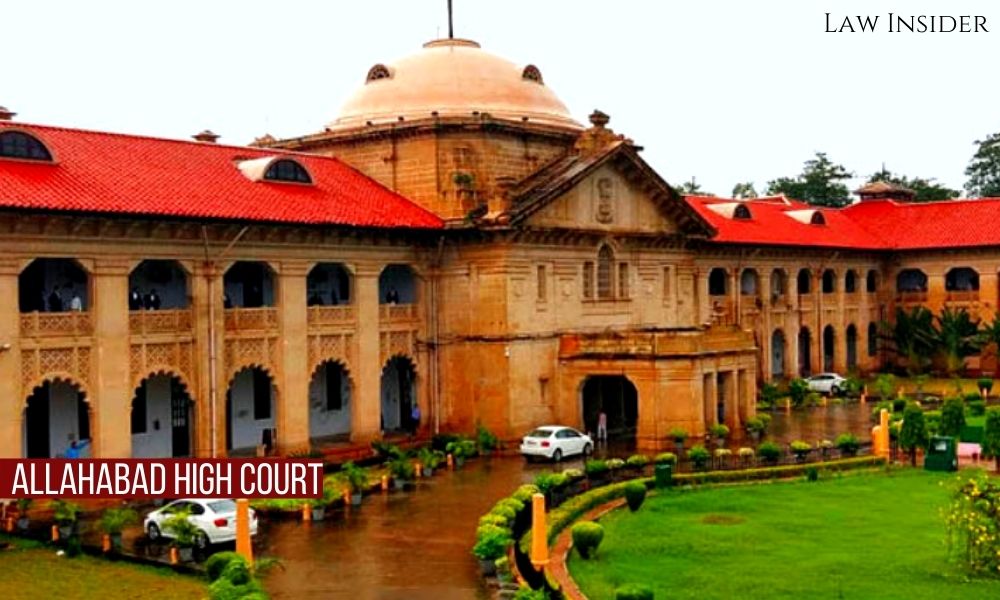LI Network
Published on: October 6, 2023 at 02:20 IST
In a reaffirmation of a significant legal principle, the Lucknow Bench of the Allahabad High Court has emphasized that pensions and post-retirement benefits are unequivocally regarded as property protected under Article 300(A) of the Constitution of India. As such, they cannot be withdrawn without the existence of a lawful provision to support such action.
The court made this ruling in response to a Writ Petition in which the petitioner had been dismissed from employment and subsequently denied post-retirement benefits due to a conviction resulting from an accident.
The court noted that the petitioner’s conduct had not been properly examined, which was a prerequisite for his dismissal based solely on the conviction.
Justice Neeraj Tiwari emphasized, “The Apex Court has taken a firm view in the matter of State of Jharkhand(Supra) that under Article 300(A) of the Constitution of India, pension and other post-retiral benefits are not bounty, but a property and cannot be taken away without provision of law.”
Advocate Arvind Kumar Vishwakarma represented the petitioner, while Additional Chief Standing Counsel Savitra Vardhan Singh appeared on behalf of the respondents.
The petitioner had initially been appointed as a Lekhpal in District-Sultanpur and had received pay raises in 1994 and 2000. Unfortunately, he became involved in an accident and was subsequently convicted of life imprisonment under Sections 302 and 149 of the Indian Penal Code (IPC).
The petitioner filed a criminal appeal against his conviction and was released on bail by the High Court. However, upon reaching the age of superannuation, he was dismissed from service due to his conviction and was denied post-retirement benefits.
In response, the petitioner filed a departmental appeal with the District Magistrate challenging the dismissal order. The appellate order stated that the decision regarding post-retirement benefits would be made after the final disposal.
The petitioner then approached the court through a Writ Petition, contesting the validity of the dismissal under Article 311(2)(a) of the Constitution of India, asserting that his conduct had not been duly considered.
The court’s main issue to determine was whether the petitioner’s service could be terminated immediately upon conviction without affording him an opportunity, in light of Article 311(2)(a) of the Constitution of India.
The court referred to the Supreme Court’s judgment in the case of State of Jharkhand & Ors. v. Jitendra Kumar Srivastava & Anr 2013 and pointed out that the impugned order had been solely based on the petitioner’s conviction without assessing his behavior.
The court reiterated that pensions and post-retirement benefits are not bestowed as gifts but are instead guaranteed as property under Article 300(A) of the Constitution of India. Consequently, they cannot be revoked without a lawful provision. The court emphasized that an employee’s conduct must be taken into account even after a conviction before terminating their employment.
The court emphasized, “From the perusal of the impugned order dated 30.08.2014, it is apparently clear that it has been passed only on the ground of conviction without having any discussion or application of mind over the conduct of the petitioner, which is a mandatory requirement in light interpretation of Article 311(2)(a) of Constitution of India by the Apex Court as well as by this Court. Now this issue is no res integra. Apex Court from the judgment of Tulsiram Patel(Supra) to many other judgments has considered this issue repeatedly and has held that even after conviction of an employee, while passing the removal or dismissal order, there must have been consideration of conduct of the employee and without that, any order of dismissal is bad.”
Consequently, the court allowed the Petition and set aside the impugned order.
Case Title: Vishwanath Vishwakarma v. State of UP (Through Prin. Secy. Deptt. of Revenue Lko.) and Ors.

